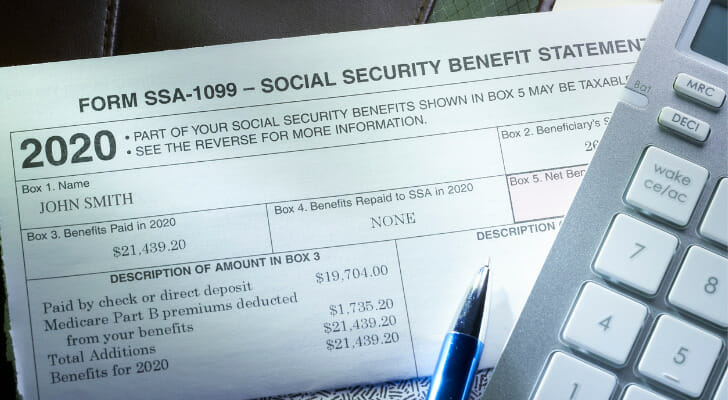

When a close friend or family member dies, there are a lot of things you have to deal with — funeral planning, dealing with the person’s estate and, of course, managing your own grief. One important task you may not think of right away is to notify the Social Security Administration of their death. One of your questions may be how to report a death to Social Security. Follow these steps to report the death of a loved one. For help navigating this process, consider working with a financial advisor.
Talk to the funeral director who oversees the arrangements for your loved one. It is often the case that the funeral director’s services include contacting Social Security as part of their contract. If so, then be sure they have all the pertinent information about your loved one like name, Social Security number and date of birth. The funeral director will also need the contact information for the deceased’s spouse. The funeral director will need to complete Form SSA-721.
If the funeral director does not report the death, you need to know how to report a death to Social Security. You must either visit your nearest Social Security office or call the Social Security Administration. You can’t make the report online. The Social Security Administration is open from 7 a.m. – 7 p.m. regardless of your time zone. Since the customary practice is for the funeral director to report a death, make sure they have the Form SSA-721. If you must report the death, call the Social Security Administration and they will advise you what documents they need for you to bring to them.
It often takes some time to receive the decedent’s death certificate from your state authorities. You can still call in the death and then complete the process by forwarding the death certificate to Social Security when you receive it. However, the funeral director will very possibly handle this for you along with reporting the death.

If your loved one received Social Security benefits of any kind, don’t keep any benefit checks received after their death. For example, if the decedent dies in March and then receives an April Social Security check, send it back to the Social Security Administration. Send the checks back intact. Do not cash them. If they have direct deposit, talk to the bank and arrange for those funds to be returned to the Social Security Administration until they have time to process the death of the recipient. They must not only receive your phone call reporting the death, but also the death certificate before the death can be processed.
After the death is processed, the surviving spouse will receive a death benefit check for $255. If there is no surviving spouse, but there are surviving children who are eligible to receive benefits on the decedent’s record during the month in which they died, they may receive the death benefit.
If your loved one has worked long enough to be a part of the Social Security system, some survivors may be eligible for survivor’s benefits. They are:
Check with the Social Security Administration before you make any assumptions about who receives benefits after a loved one dies since there are certain circumstances attached to many of these beneficiaries. Even though you cannot report a death online, you can apply for benefits online. If the deceased has not yet received Social Security benefits, the appropriate course of action is to go online and apply at the Social Security website after the death has been recorded.

If a loved one has died, the death must be recorded by the Social Security Administration through reporting by either the funeral director or you. Neither the death benefit or any survivor’s benefits can be paid until reporting is done and the death certificate is submitted. This procedure should help make the process a little easier.
Photo Credit: ©iStock.com/Bill Oxford, ©iStock.com/mphillips007, ©iStock.com/PeopleImages
Read More About Estate Planning



More from SmartAsset
SmartAsset Advisors, LLC ("SmartAsset"), a wholly owned subsidiary of Financial Insight Technology, is registered with the U.S. Securities and Exchange Commission as an investment adviser. SmartAsset's services are limited to referring users to third party advisers registered or chartered as fiduciaries ("Adviser(s)") with a regulatory body in the United States that have elected to participate in our matching platform based on information gathered from users through our online questionnaire. SmartAsset receives compensation from Advisers for our services. SmartAsset does not review the ongoing performance of any Adviser, participate in the management of any user's account by an Adviser or provide advice regarding specific investments.
We do not manage client funds or hold custody of assets, we help users connect with relevant financial advisors.
This is not an offer to buy or sell any security or interest. All investing involves risk, including loss of principal. Working with an adviser may come with potential downsides such as payment of fees (which will reduce returns). There are no guarantees that working with an adviser will yield positive returns. The existence of a fiduciary duty does not prevent the rise of potential conflicts of interest.